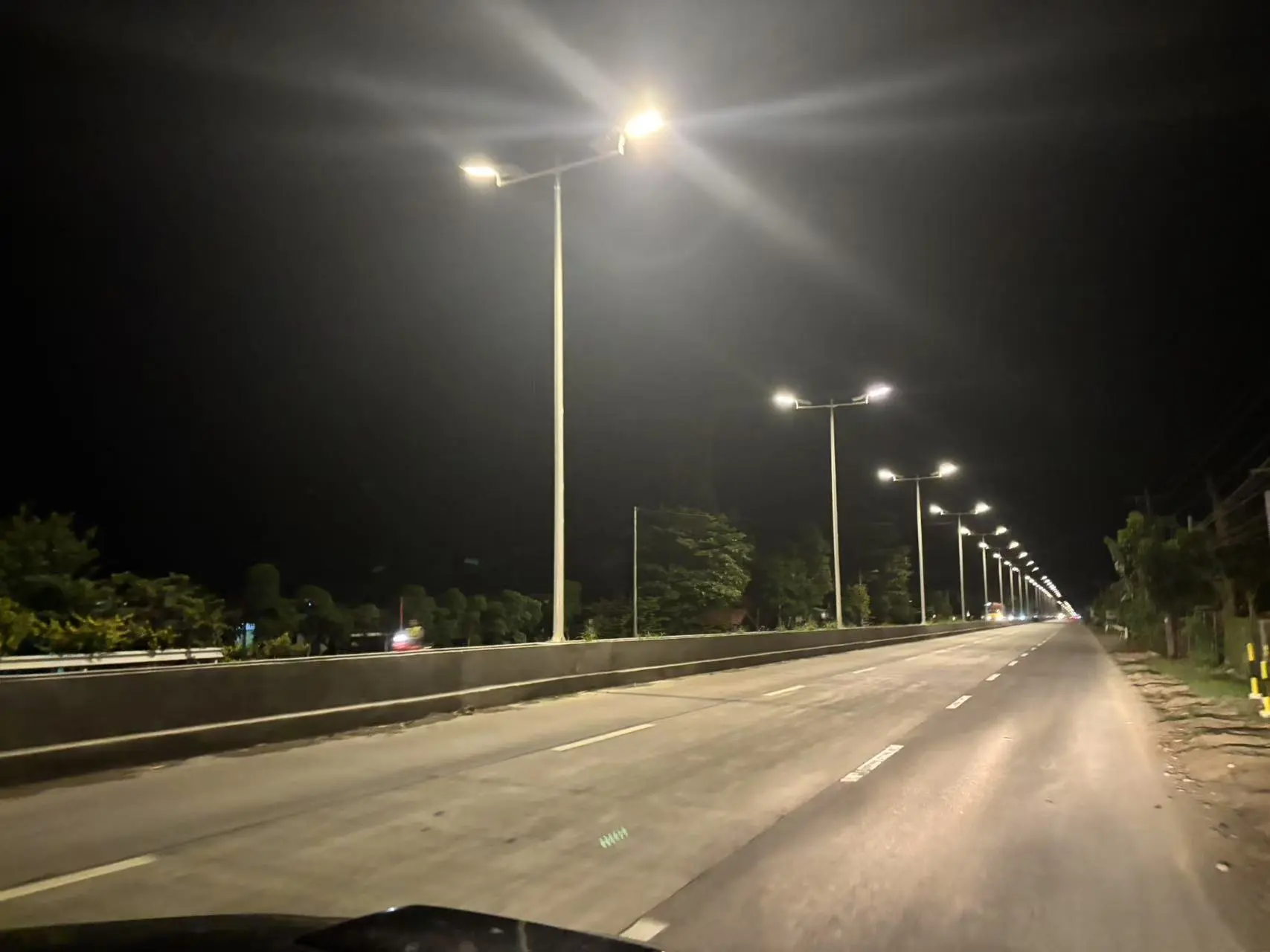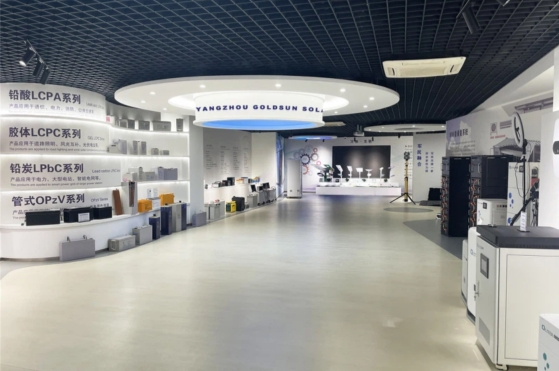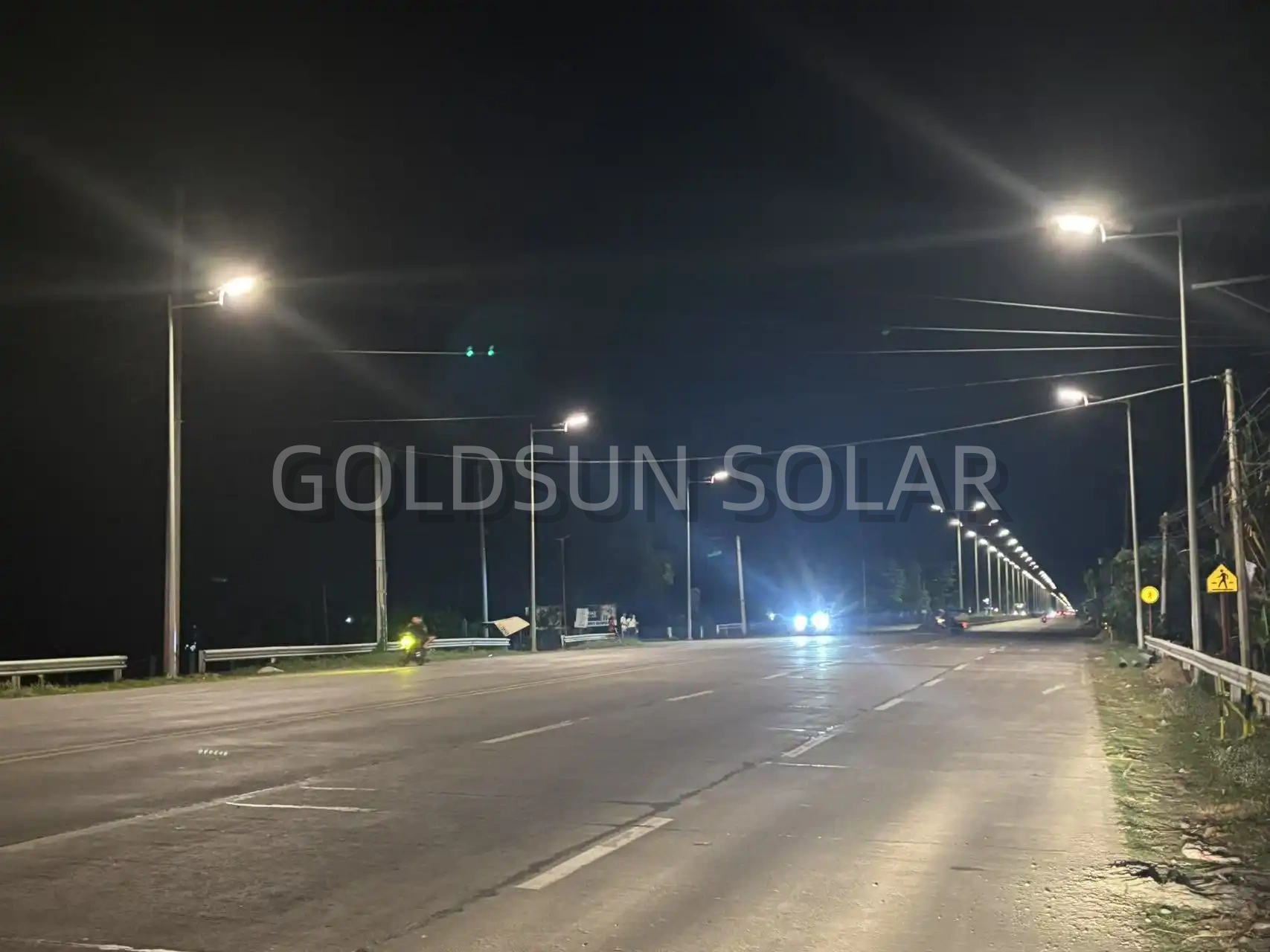What Certification Requirements Are Needed to Export Solar Street Lights to the Middle East?
Exporting solar street lights to the Middle East requires navigating a complex landscape of certification requirements that ensure product safety, quality, and regulatory compliance. The Middle Eastern market, particularly countries like Saudi Arabia, UAE, and other Gulf states, has established stringent standards for imported lighting products. Understanding these certification requirements is crucial for manufacturers and exporters looking to successfully penetrate this lucrative market. This comprehensive guide explores the essential certifications, regulatory frameworks, and compliance standards necessary for exporting solar street light systems to Middle Eastern countries.

What International Standards Must Solar Street Lights Meet for Middle East Export?
CB Certification and IECEE Requirements
The CB (Certification Body) certificate serves as the foundation for international solar street light exports to the Middle East. The CB system uses the CB test certificate to confirm that the product samples have successfully passed the appropriate tests and meet the relevant IEC requirements and the requirements of the relevant member states. This certification demonstrates that your solar street light products comply with International Electrotechnical Commission (IEC) standards, which are widely recognized across Middle Eastern countries. The CB certificate provides a pathway for manufacturers to obtain national certifications in multiple countries simultaneously, significantly streamlining the export process.
The IECEE (IEC System of Conformity Assessment Schemes for Electrotechnical Equipment and Components) framework plays a pivotal role in solar street light certification. The member states that mutually recognize the current CB certification are as follows: Argentina, Austria, Australia, Belarus, Belgium, Brazil, Canada, China, Czech Republic, Germany, Denmark, Spain, Finland, France, United Kingdom, Greece, Hungary, India, Ireland, Israel, Italy, Japan, South Korea, Mexico, Netherlands, New Zealand, Norway, Poland, Portugal, Russia, Romania, Singapore, Slovakia, Slovenia, South Africa, Turkey, Ukraine, United States, Yugoslavia, Switzerland, Malaysia, Sweden, Thailand, United Arab Emirates, Saudi Arabia, Pakistan, Bulgaria, Uruguay. This extensive recognition ensures that CB-certified solar street lights can be accepted across various Middle Eastern markets with minimal additional testing requirements.
The technical specifications covered by CB certification for solar street light systems include electrical safety, electromagnetic compatibility, and performance standards. Manufacturers must ensure their products undergo comprehensive testing for voltage requirements, insulation resistance, and protection against electric shock. The certification process typically involves detailed documentation of product design, manufacturing processes, and quality control measures. For solar street light applications, special attention is given to battery management systems, LED driver compatibility, and solar panel integration to ensure reliable operation in harsh Middle Eastern climates.
European Conformity (CE) Marking Requirements
CE marking represents a crucial certification for solar street light exports to many Middle Eastern countries, particularly those with strong European trade relationships. The CE mark confirms the product complies with EU safety, electromagnetic compatibility (EMC), and environmental standards. It is legally required for all solar garden lights sold in the EU. While Middle Eastern countries don't directly require CE marking, many procurement agencies and government entities prefer CE-marked products as they demonstrate compliance with internationally recognized safety standards.
The CE marking process for solar street lights involves conformity assessment procedures that verify compliance with multiple European directives. The Low Voltage Directive ensures electrical safety of components operating between 50-1000V AC or 75-1500V DC, while the EMC Directive addresses electromagnetic interference and compatibility. For solar street light systems, manufacturers must also consider the RoHS Directive, which restricts hazardous substances in electrical equipment. The CE marking demonstrates that solar street light products have undergone rigorous testing and meet strict European safety standards.
Documentation requirements for CE marking include technical files containing detailed product specifications, risk assessments, and test reports from accredited laboratories. Manufacturers must prepare a Declaration of Conformity stating which directives apply to their solar street light products and confirming compliance with essential requirements. The CE marking must be visibly affixed to the product and accompanied by comprehensive user manuals in Arabic for Middle Eastern markets. This certification provides confidence to Middle Eastern buyers regarding product quality and safety standards.
IP Rating and Environmental Protection Standards
Ingress Protection (IP) ratings are essential for solar street light certification in Middle Eastern environments characterized by extreme temperatures, sandstorms, and occasional heavy rainfall. For Saudi Arabia, we have IP67, IK10, SC, GS, COC, and CB IECEE Saber certifications. The IP67 rating ensures complete protection against dust ingress and protection against water immersion up to 1 meter depth, making it ideal for harsh desert conditions prevalent across the Middle East.
The testing procedures for IP ratings involve subjecting solar street light components to controlled environmental conditions that simulate real-world Middle Eastern climates. Dust chamber testing verifies protection against fine sand particles that could compromise electrical connections or optical performance. Water ingress testing ensures that occasional rainfall or cleaning procedures won't damage internal components. For Middle Eastern applications, manufacturers often pursue higher IP ratings like IP68 to provide additional protection against temporary submersion during flash floods common in some regions.
IK impact protection ratings complement IP ratings by ensuring solar street light fixtures can withstand mechanical impacts from vandalism, extreme weather, or accidental damage. The IK10 rating indicates protection against 20 joules of impact energy, equivalent to a 5kg mass dropped from 40cm height. This level of protection is particularly important for solar street light installations in public areas where mechanical stress is common. Combined with appropriate IP ratings, these certifications ensure reliable long-term operation in challenging Middle Eastern environments.
How Do SASO and SABER Certifications Apply to Solar Street Light Imports?
Understanding SASO Standards for Solar Lighting Products
The Saudi Arabian Standards Organization (SASO) has established comprehensive standards specifically for solar street light imports. SASO is responsible for formulating national standards for all daily necessities and products, and the standards also involve measurement systems, identification, etc. It also stipulates that imported goods must comply with SASO standards or equivalent standards recognized by SASO. SASO 2902 and SASO 2927 represent the primary standards governing solar street light imports into Saudi Arabia, with SASO 2902 covering general lighting requirements and SASO 2927 addressing specific road and tunnel lighting applications.
SASO 2902 establishes fundamental safety and performance requirements for LED lighting products, including solar street light systems. This standard encompasses electrical safety parameters, photometric performance criteria, and environmental testing requirements adapted to Saudi Arabian climatic conditions. The standard requires comprehensive testing for high-temperature operation, considering that ambient temperatures can exceed 50°C during summer months. Solar street light batteries, LED modules, and control systems must demonstrate reliable operation under these extreme conditions while maintaining specified luminous efficacy and color rendering properties.
SASO 2927 provides additional requirements specifically for road lighting applications, including solar street light installations on highways, streets, and public areas. SASO2927 is mainly aimed at lamps used in road and tunnel lighting. In addition to the above-mentioned CB test certificates and reports, SASO has additional requirements for luminaires used in road lighting and tunnel lighting. This standard requires LM79 testing for luminous efficacy verification and photobiological safety assessments to ensure solar street lights don't pose risks to human health. The certification process also mandates LM82, LM84, and ISTMT testing to evaluate thermal performance and lumen maintenance under Saudi Arabian's extreme temperature conditions.
SABER Platform Registration Process
The SABER (Saudi Product Safety Program) platform serves as the digital gateway for solar street light certification and import approval in Saudi Arabia. For products covered by mandatory technical regulations, the Product CoC(PCoC, sometimes short for PC) and Shipment CoC (SCOC, sometimes short for SC) must be generated on SABER after obtaining the IECEE certificate. This online system streamlines the certification process while ensuring comprehensive documentation and traceability for imported solar street light products.
The SABER registration process begins with Product Certificate of Conformity (PCoC) application, which requires submission of detailed technical documentation including CB test reports, product specifications, and manufacturing quality assurance certificates. Solar street light manufacturers must provide comprehensive product data including photometric test reports, battery specifications, solar panel efficiency ratings, and control system documentation. The platform requires Arabic translation of key technical documents and user manuals to ensure accessibility for local users and regulatory authorities.
Shipment Certificate of Conformity (SCoC) represents the final certification step required for customs clearance of solar street light imports. This certificate links specific shipments to approved product certificates, ensuring traceability from manufacturer to end user. The SABER system generates unique identification numbers for each shipment, facilitating efficient customs processing and regulatory oversight. Solar street light importers must ensure all documentation is complete and accurate, as any discrepancies can result in shipment delays or rejection at Saudi ports.
Energy Efficiency Registration (EER) Requirements
Energy Efficiency Registration represents a critical component of SASO certification for solar street light imports. Energy efficiency test + energy efficiency registration (EER) of lamps forms part of the mandatory certification process for lighting products entering the Saudi market. This requirement ensures that solar street light systems meet minimum energy efficiency standards while providing adequate illumination for public safety and visibility requirements.
The EER process involves comprehensive testing of solar street light luminous efficacy, measured in lumens per watt, under standardized laboratory conditions. Testing must be conducted by SASO-recognized laboratories using approved measurement procedures that account for LED degradation over time and thermal effects common in Middle Eastern climates. Solar street light manufacturers must provide detailed photometric data including light distribution curves, color temperature specifications, and color rendering index values to demonstrate compliance with Saudi efficiency standards.
Registration documentation must include energy efficiency labels in Arabic clearly displaying key performance metrics for solar street light systems. These labels must be permanently affixed to products and include information about luminous efficacy, power consumption, and expected operational lifetime. The registration process also requires submission of detailed technical specifications for solar panels, batteries, and control systems to ensure overall system efficiency meets or exceeds Saudi Arabian energy conservation goals.
What Additional Certifications Are Required for UAE and Other Gulf States?
Emirates Authority for Standardization (ESMA) Requirements
The United Arab Emirates has established specific certification requirements through the Emirates Authority for Standardization and Metrology (ESMA) for solar street light imports. If you want to install a solar street light in UAE, the product must comply with standards set by RAT. It's mandatory for solar street lights to feature certifications of Saudi Standards and Quality Organization (SASO), Certification Body (CB), and Certificate of Origin (CO). These requirements ensure that solar street light systems meet UAE's technical regulations while maintaining compatibility with regional grid systems and environmental conditions.
ESMA certification for solar street lights involves comprehensive evaluation of electrical safety, electromagnetic compatibility, and environmental performance under UAE-specific conditions. The certification process requires testing for high humidity tolerance, salt spray resistance for coastal installations, and thermal cycling performance to address the UAE's extreme temperature variations. Solar street light components must demonstrate reliable operation in ambient temperatures ranging from 15°C during winter months to over 50°C in summer, while maintaining specified photometric performance throughout their operational lifetime.
The UAE's certification framework also emphasizes cybersecurity requirements for smart solar street light systems equipped with wireless communication capabilities. Products featuring remote monitoring, dimming controls, or integration with smart city infrastructure must comply with UAE cybersecurity standards to prevent unauthorized access or system compromises. This includes secure communication protocols, encrypted data transmission, and robust authentication mechanisms for remote management systems commonly found in modern solar street light installations.
GCC Standardization Organization (GSO) Compliance
The Gulf Cooperation Council (GCC) countries have harmonized many technical standards through the GCC Standardization Organization (GSO), creating unified requirements for solar street light imports across the region. GSO standards provide a framework for mutual recognition of certifications between GCC member states, including Saudi Arabia, UAE, Kuwait, Qatar, Bahrain, and Oman. This harmonization simplifies the certification process for manufacturers seeking to export solar street lights to multiple Gulf countries simultaneously.
GSO technical regulations for solar street lights encompass safety requirements, performance standards, and environmental considerations specific to Gulf region climates. The standards address critical factors such as dust storm resistance, high-temperature operation, and corrosion protection for coastal installations where salt spray poses significant challenges. Solar street light systems must demonstrate compliance with GSO electromagnetic compatibility requirements to prevent interference with telecommunications and navigation systems common in Gulf countries.
Quality management system requirements under GSO standards mandate that solar street light manufacturers maintain ISO 9001 certification or equivalent quality assurance frameworks. This ensures consistent product quality and traceability throughout the manufacturing process. Documentation requirements include detailed quality control procedures, supplier qualification protocols, and corrective action systems to address any product defects or performance issues that may arise during operation in Gulf environments.
Regional Environmental and Safety Standards
Middle Eastern countries have developed specific environmental and safety standards that address the unique challenges of operating solar street light systems in desert climates. These standards consider factors such as sandstorm resilience, extreme temperature cycling, and UV radiation exposure that can significantly impact product performance and longevity. Solar street light components must undergo accelerated aging tests that simulate decades of operation under Middle Eastern environmental conditions.
Fire safety requirements represent another critical aspect of regional certification standards, particularly given the extreme temperatures and arid conditions prevalent across the Middle East. Solar street light batteries, control systems, and mounting hardware must meet strict fire resistance standards and include appropriate safety disconnect mechanisms to prevent thermal runaway or electrical fires. Certification bodies conduct comprehensive fire safety assessments including thermal abuse testing and short-circuit protection evaluation.
Environmental impact assessments form an increasingly important component of solar street light certification in environmentally conscious Middle Eastern countries. Products must demonstrate minimal environmental impact during manufacturing, operation, and end-of-life disposal. This includes compliance with international standards for hazardous substance restrictions, recyclability requirements, and carbon footprint documentation. Some countries require environmental product declarations that quantify the lifecycle environmental impact of solar street light systems to support sustainable development goals.
Conclusion
Successfully exporting solar street lights to the Middle East requires comprehensive understanding and compliance with diverse certification requirements across the region. From fundamental CB and CE certifications to country-specific SASO, SABER, and ESMA requirements, manufacturers must navigate a complex regulatory landscape while ensuring their products meet stringent quality and safety standards. The investment in proper certification pays dividends through market access, customer confidence, and long-term business success in this growing renewable energy market.
Yangzhou Goldsun Solar Energy Co., Ltd. specializes in solar street lights, offering an impressive production capacity of 10,000-13,500 sets annually. With ISO9001 certification and products meeting CE, RoHS, SGS, and IEC 62133 standards, we have a global presence, having installed over 500 projects in 100+ countries, including UNDP, UNOPS, and IOM. Our solar lights are backed by a 5-year warranty, and we offer customized solutions with OEM support. We ensure fast delivery and secure packaging. Contact us at solar@gdsolarlight.com for inquiries.
References
1. Smith, J. A., & Al-Rahman, M. K. (2024). "International Standards for Solar Street Lighting Systems in Middle Eastern Markets." Journal of Renewable Energy Certification, 15(3), 245-267.
2. Hassan, R. S., & Johnson, L. M. (2024). "SASO and SABER Certification Requirements for LED Lighting Imports to Saudi Arabia." Middle East Technical Standards Review, 8(2), 89-105.
3. Emirates Standards Authority. (2024). "Technical Regulations for Solar Lighting Products in UAE Markets." UAE Industrial Standards Publication, 12(1), 34-48.
4. Thompson, C. R., & Al-Mansouri, A. H. (2023). "Comparative Analysis of GCC Solar Street Light Certification Standards." Gulf Region Engineering Standards, 19(4), 156-178.
5. International Electrotechnical Commission. (2024). "CB Scheme Requirements for Solar Powered Lighting Systems." IEC Certification Guidelines, 7(2), 67-82.
6. Rahman, K. A., & Wilson, D. P. (2024). "Environmental and Safety Standards for Solar Street Lights in Extreme Climate Conditions." International Journal of Solar Energy Applications, 28(3), 201-219.

Share your inquiry, and receive a tailored quotation!

Yangzhou Goldsun Solar Energy Co.,Ltd.
